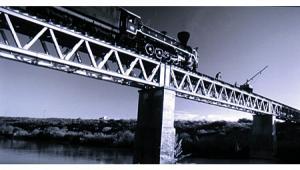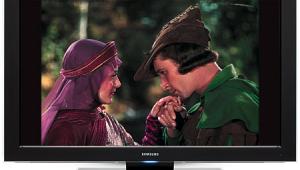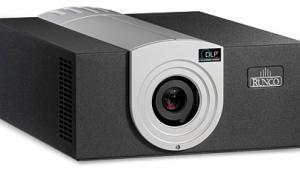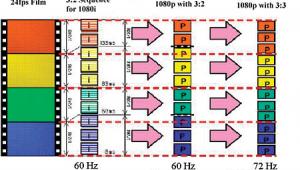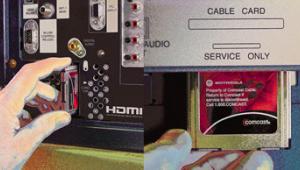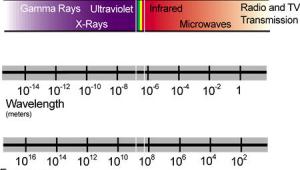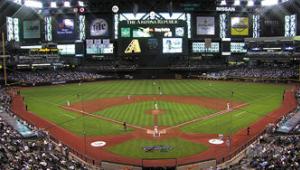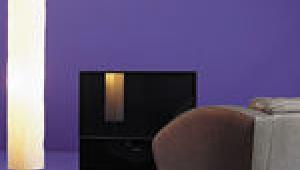Having a Ball with HDTV A Q/A with Mark Cuban
Technical consultant Ron Williams had a chance to talk with Mark Cuban, founder of HDNet, about the goals and objectives of HDNet.
RW: What kind of programming is HDNet looking for?
MC: Everything. We're trying to give the experience right now. We're not trying to program against NBC, ABC, CBS, Fox, or any other network for ratings. Our motivation is to show HD and provide the ultimate eye candy. We want to experiment while the industry is new and try everything we can—from converting episodes of Speed Racer from 35mm film to high-def to sending Peter Arnett into war zones in Afghanistan, Iraq, and Israel. Even having new movies and older black-and-white movies transferred to high-def to offer variety for the market.
RW: How much programming can you put on a sports-oriented channel?
 MC: We're really not sports-oriented. What we're trying to do is general programming. We're an early adopter of high-definition. What we want to do is create a scenario where people can see HDNet in stores. All a store needs is a subscription to DirecTV to show HD. We have over 1,600 stores showing HDNet now—about one million people a day see HD and stay, ‘Wow.' We want them to buy the HD set with a subscription and be able to take it home, watch it, and say, ‘Wow' at home again. We want to promote the format and, obviously, HDNet.
MC: We're really not sports-oriented. What we're trying to do is general programming. We're an early adopter of high-definition. What we want to do is create a scenario where people can see HDNet in stores. All a store needs is a subscription to DirecTV to show HD. We have over 1,600 stores showing HDNet now—about one million people a day see HD and stay, ‘Wow.' We want them to buy the HD set with a subscription and be able to take it home, watch it, and say, ‘Wow' at home again. We want to promote the format and, obviously, HDNet.
RW: Will your agreements with NBC and Fox promote more programming for HDNet specifically, or are you providing a service for them?
MC: Yes, it will provide more programming for HDNet and programming for those networks' affiliates for over-the-air broadcasts. The idea is to create a rising tide for all boats so that everyone will benefit. It's good for HD in general and for HDNet. With this programming, HDNet will be one of the boats rising along with high-definition transmission in general.
RW: The Discovery Channel went on the air June 17th with an HD channel. What effect will that have on HDNet's programming and viewers?
MC: I don't look at this as a competition. I look at it as helping and promoting high-definition. If we can all get things rolling along together, then we're all further ahead in promoting high-definition.
RW: Can you give me any specifics on what types of programming you're going to be doing for NBC?
MC: We'll be doing the Triple Crown and other sporting events for NBC. We have a terrific relationship with NBC, and we'll be doing other sporting events with them—what specifically I can't announce at this time. As far as Fox Sports, we have a good relationship with them and an ongoing dialogue, and we'll be doing other things in the future—what specifically I can't say.
RW: Is there any roadblock to doing sports with ABC because of the format differences?
MC: We've had several conversations with the folks at ESPN. They prefer 720p, and we're on 1080i, but I don't see that as a roadblock. We have invested in the 1080i equipment, and they have invested in 720p, so they will make their decisions based on the format that they've chosen.
RW: What are your long-range expansion plans for HDNet?
MC: We will add three additional networks—sports, entertainment, and movies—in the future.
RW: Knowing that there are other countries—Australia being one—that are very big into high-definition right now and have a lot of programming to offer, I guess you'd want to draw programming from anywhere?
MC: The programming that we require has to be within the context of the programs that we're putting on. I've talked to the folks from Australia, but right now the programs they have are a bit pricey for us.
RW: How does HDNet deal with technical issues like bit rate and things like that?
MC: We do adhere to standards as far as bit rate is concerned. We don't dumb down the signal for the satellite. We use the DVB-ASI transmission standard, and, on a net-net encoding basis, we use the full 19.4 megabytes. We want to keep the quality very high to keep the wow factor there. We will maintain high standards to keep the HD signal at a very high quality.
RW: Your production companies in Colorado have three production units that are 1080i high-definition trucks. Are they for general production or for HDNet?
MC: The production companies in Colorado are owned by my business partner, and the three trucks were built for HDNet and do HDNet productions only.
RW: What about content ownership? What will you do with the programs that you originate?
MC: We don't believe that the program content is an element that could be traded off like Napster was. This is too specific. You need too much of a type of hardware, and you need an HD monitor to display it with any quality or resolution.
RW: What are your thoughts about the HD DVD players/recorders, which are due out in a few years?
MC: The DVD recorders will just be a big boost to high-def. The MPAA wasn't afraid of movies being recorded on VHS, but, for some reason, they're very reluctant to let movies be recorded digitally in high-definition. I don't think that, with the cost of the hardware, they have to worry about people taking the movies and doing anything with them other than watching them as they would a VHS tape.
RW: Do you have any plans or do you foresee HDNet doing pay-per-view?
MC: There really isn't enough bandwidth right now for pay-per-view channels. There's just barely enough HD channels on the satellite now without going into pay-per-view. When the time comes, we will look into it. We are interested.
RW: With the coming of digital cinema, do you have plans for showing sporting events in HD in these theaters?
MC: Well, yes. Right now, in Dallas, we're working with Magnolia Theaters. They are running HDNet in the theaters on the DLP projectors. The biggest problem that we have right now is waiting for the projector manufacturers to do a DVI interface so that we can input data into the projector. If we have a sporting event or a movie or something that we want to put on in HD in the theater, we're not going to worry about somebody stealing it or showing it somewhere else. It's restriction-free, anyway, so it's a theatrical presentation for those folks in the theater.
RW: How do you think the HD signal looks projected in the theater?
MC: We've seen it off the satellite into the projector, and it looks good. It could be brighter. When we have a DVI connection, we won't have to go through so much to get it into the projector. I think it's very viable and a good presentation.
RW: Would you consider putting on sports presentations or your own programming in the afternoon to supplement a theater's regular theatrical presentations in the evening?
MC: Well, I wouldn't even wait until the afternoon. If we have a Mavericks game in the evening, it would be viable to put the playoff game in the theater and charge a nominal fee per head to offer the full experience of being there watching the game.



